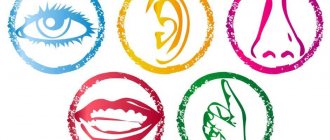Good afternoon or evening, dear readers. Each of us has an individual character, and of course, there are no people of the same type in the world. Scientists have long proven that even twins differ in character type, despite their similarity and upbringing using the same method.
Do you think that you have a good understanding of people and see right through them? Actually this is not true. What kind of character is a person? This can be judged only after a complete study of all types and highlighting the main parameters.
What it is
Is character a genetic trait or an acquired skill? Psychology is not medicine, but a whole science. It is psychologists who, after many years of studying human behavior, can answer questions on this topic.
Character implies positive and negative qualities that are formed from birth and during the period of growing up.
Each person shows his positive and negative sides in personal and social behavior. By his actions in a given situation, one can determine what character trait a person has.
There are main 4 types of people with different interests, but with different points of view on certain situations. Character is determined by the type of person’s attitude towards different aspects of life:
- Attitude towards others. Regardless of status and age, a person can treat another in different ways: anger, isolation, excessive sociability, respect or disdain.
- Personal qualities. No matter what family a person grew up in, they can be humble, arrogant, proud or neutral. Based on these facts, we can give a complete assessment of people in different life situations.
- Attitude to work . Many people believe that people don't like to work hard. But in reality, we are all different and we all have different attitudes towards work. Some people are lazy, while others, on the contrary, take initiative in the workplace. Related to this are conscientiousness, responsibility and other qualities needed in a team.
- Attitude to your appearance. Have you noticed that in one organization or just at a bus stop people have different appearances? Some dress stylishly, neatly, things are ironed, there are no flaws.
Other individuals take their appearance less seriously, not paying attention to dirty shoes, wrinkled or torn shirts, and so on. It is precisely by such insignificant parameters that one can understand what type of character a particular person belongs to.
How are strengths different from weaknesses?
Wit
All weaknesses can become strengths if you look at them from a different angle. For example, a person is restless. If he works as a sales manager or sales representative, then this is rather a plus rather than a minus.
Another example is non-conflict. Getting along is considered a positive character trait. On the other hand, there are people who simply need to be put in their place, and this sometimes requires going into conflict.
Regardless of gender and activity, there is one universal character trait that is strong in any case. Unfortunately, it is not inherent to everyone. This is a sense of humor. A witty person can always get out of a difficult situation. Such people are usually respected and people try to be friends with them.
Important! Wit often borders on sarcasm, sometimes on cynicism. Care must be taken because it is a very fine line.
Temperament and character
Human character can be ambiguous, as it changes throughout life and depends on the environment in which the person finds himself. Therefore, it is impossible to assess how a person will change if he is placed in a rigid framework from a comfortable environment.
Temperament, on the contrary, is given from birth and accompanies a person throughout his life. This is a normal reaction of the body to various irritants. So, having learned the temperament of a friend or beloved guy, a girl can safely analyze her character.
There are very temperamental personalities in life, but this is also rare. Most often, society consists of a mixed type of people. Temperament is also divided and comfort in life and one’s own emotional state depend on its essence.
- Choleric. If you have always considered yourself a choleric person, then listen to your own self. These beautiful creatures of earthly origin are always emotionally unstable, especially during events. They are prone to mood swings, strange behavior, and other unusual expressions of their emotions. If this is not about you, then move on.
- Sanguine. If you love to communicate, are always in the center of events, and don’t miss important news, then congratulations, you are lucky to be sanguine.
People with this temperament always take failures lightly, cope well with losses, and look for the good sides in every situation. The nervous system of such people is stable, they can reason sensibly without reacting to provocations.
The downside of this behavior is the instability of the attitude towards work. If a person has chosen a job he likes, he really likes it, most likely he will have success in his career. Otherwise, he will stop and be indifferent to the results of his activities.
- Phlegmatic person. The most calm and balanced individuals. They are not in a hurry, they always think about their actions. Habits may not change throughout life; they love order and sequence in actions and life. Change is not for them; they are used to living in their own world, where there is no fuss, passions or other fluctuations.
- Melancholic people. People are very difficult in relationships. The events that accompany them can cause them emotional stress. They are characterized by vulnerability, instability in mood, hysterics for no reason.
Most often, if such individuals are brought up in an unfavorable environment, they cannot achieve career advancement in life, are left without a family, and are prone to alcoholism and other passions.
If a person grew up in a prosperous family, where he was surrounded by care, he will go further and perhaps become an outstanding artist.
Temperament cannot be changed, even if you understand that you need to change for the better. Don't despair, because there are still character traits, and there is still an opportunity to work with them.
Before you go to the next knowledge, first determine your character type, which category you actually belong to. If in doubt, analyze your actions at home, at work, on public transport. Pay attention to how you react in difficult situations, during scandals, rest, and so on.
Bottom line
Personality character often helps in understanding the personality itself, since everything revolves around its inner world, which has manifestations in the form of reactions, emotions, behavior, actions and even achievements that are currently available. Considering the different character types can lead to the following result - understanding people quickly and easily.
Character is a flexible characteristic that can be changed at any time. It can change both unconsciously and under the influence of the willpower of a person who controls the manifestation of a particular quality. The longer a person exhibits a particular quality, the more it is consolidated and becomes one of his characteristics that influences the future development of life.
Kretschmer classification
Scientists, psychologists and other scientists have long distributed criteria for different personalities. It’s very simple, if a person doubts who he is, he can study the typology according to Kretschmer.
This outstanding person created a table for determining a person’s character by his physique. Here we can distinguish 3 main typologies:
- Picnics. People are short, overweight, have short necks and small heads. They belong to the cyclothymic character type. Sociable, good-natured, but very emotional personalities.
They get along well in society, are not prone to serious scandals, and can get along with even the most unpredictable creatures. Such figures are prone to certain mental illnesses, such as manic-depressive psychosis.
- Asthenics. Men and women of tall, thin build. Long arms and legs immediately reveal such personalities. The face is elongated and thin, with many facial wrinkles. The character type of such individuals is schizothymic.
Figures of this type rarely smile, are not prone to constant fun, and take life very seriously. Stubbornness and isolation allow them to achieve success in their careers and personal lives. They may suffer, like picnics, from mental illness. Most often, patients classified as asthenics develop schizophrenia.
- Athletics. The name speaks for itself. Personalities of this type are tall, broad-shouldered, with prominent muscles. The category of such people is ixothymic. Athletics are stubborn, reserved and resilient people.
They clearly follow the goal and achieve it by any means. A calm, balanced life helps them deal with hardships, but they are very afraid of change, as they do not adapt well to the new environment and the surrounding society.
Many years of research by scientists have proven that people of the same race have similar character traits. The famous scientist Anders Retzius studied the Nordic character for a long time.
It was he who introduced the term “Nordic” for a more clear separation of all types and categories. He took the Germanic races as a basis for his research, and made a real breakthrough in his endeavors.
During the work, it became clear that individuals of German origin are tall, not overweight, have blond hair, and blue eyes. They are distinguished by endurance, resistance to external irritants, very cool-blooded and calm even in emergency situations.
When accentuation becomes a pathology
On the one hand, an accentuated character trait can make a person successful, but on the other hand, it is his weak spot. Thus, people of the hysterical type can become talented actors. However, they are very afraid of ridicule and, in a negative situation, are prone to demonstrative suicide.
Therefore, there is always a high risk that in difficult situations, accentuation will develop into neurosis or psychopathy and become the cause of alcoholism, drug addiction, and crime. The reasons for the manifestation of character accentuation can be both hereditary factors and the characteristics of the child’s upbringing.
Typology according to Jung
For centuries, humanity has been studying each other, each scientist tries to present his point of view and spread it to the masses. A psychiatrist from Switzerland did not stand aside and began to study humanity based on its internal and external awareness of the world. It turned out to distinguish 2 main types:
- Introverts. These are calm, reserved individuals who do not like noisy companies and many friends. As a rule, they live separately, separately from the bulk of the population, and have very difficult contacts with society.
They prefer stability and loneliness, rarely change their place of work or residence. They think and reflect a lot, which leads to anxiety and suspiciousness. Subjects of this category are easily manipulated by others and are often inspired by religious ideas.
- Extroverts. These are cheerful, sociable and emotionally unstable people. Always in the center of attention, they love companies and everything related to parties.
They live to the fullest, forgetting about minor problems, and even the troubles of other people close to them. A complex but peaceful character allows one to find a common language with society, regardless of social status.
When analyzing all types of topology, you should not immediately equate yourself to one or another type; there are psychologists and other specialists for this. Emotional, suggestible people can begin to delve into themselves, while losing common sense. This can change your whole life. Be careful with self-criticism.
Lowen topology
Psychology does not require precision, but by studying different people, over time you come to a positive or negative opinion. Do you think scientists invented all the indicators?
No, scientists, doctors and scientists have been studying human behavior for many decades. So the American psychoanalyst tried to create his own point of view, defining people by their behavior in certain circumstances.
Having studied the defensive reactions of individuals, he was able to recreate the complete picture by dividing humanity into 5 groups.
- Oral. Egoists and weak-willed individuals who cannot independently realize themselves in life without the support of other people. They constantly demand attention, care, and pity.
But at the same time they don’t give the other person anything in return. They cannot make decisions on their own, are afraid of loneliness, and are emotionally unstable in emergency situations.
- Masochistic. Angry and unbalanced people. They get along poorly in society because they constantly carry negativity. They love to feel sorry for themselves and complain about life, without trying to improve it. Seeing the tragedy of another person, he rejoices, because he believes that not only he has to suffer, let the other part of the planet suffer too.
- Hysterical. Reckless, emotional people who seek adventure in everything. They always play to the public, drawing attention to themselves.
They are in constant tension because they lie a lot and try to present themselves in the best light. Such subjects often experience emotional breakdowns, but do not like a calm, peaceful environment.
- Narcissistic. The name is chosen accurately, since the subjects love only themselves, forgetting about those around them and the problems that they themselves create.
Most often this applies to men. Women rarely suffer from this type of disorder. Narcissistic men persistently achieve their goals and have several partners at once, which allows them to assert themselves. They feel great in society, but suppress it for gain or to achieve a goal.
- Schizoid. Subjects are far from real life and cannot adequately respond to certain situations. Inconstancy in partnership, breakdowns, misunderstanding and self-criticism. A long-term relationship with one person forces you to be in constant tension and anxiety, which leads to scandals and breakups.











